- Home
- Daphne Du Maurier
Frenchman's Creek Page 15
Frenchman's Creek Read online
Page 15
The captain's boat waited beneath the ladder, and coming up from the cabin he called to Dona, who was leaning against the rail on the poop-deck watching the first star above a dark tree, and they pulled away down the creek where the swans had gone, the little boat lapping against the water.
Soon the fire glowed in the clearing, the dried sticks snapping and breaking, and this night they cooked bacon, curling and streaky and crisp, with bread that was burnt also by the fire and was toasted and black. They broke the bacon in their hands, and then brewed coffee, strong and bitter, in a saucepan with a bent handle, and afterwards he reached for his pipe and his tobacco, and Dona leant against his knee, her hands behind her head.
"And this," she said, watching the fire, "could be forever, if we wished. Could be tomorrow, and the next day, and a year ahead. And not only here, but in other countries, on other rivers, in lands of our own choosing."
"Yes," he said, "if we so wished. But Dona St. Columb is not Dona the cabin-boy. She is someone who has a life in another world, and even at this moment she is waking in the bedroom at Navron, with her fever gone, remembering only very faintly the dream she had. And she rises, and dresses, and sees to her household and her children."
"No," she said, "she has not woken yet, and the fever is still heavy upon her, and her dreams are of a loveliness that she never knew in her life before."
"For all that," he told her, "they are still dreams. And in the morning she will wake."
"No," she said. "No, no. Always this. Always the fire, and the dark night, and the supper we have cooked, and your hand here against my heart."
"You forget," he said, "that women are more primitive than men. For a time they will wander, yes, and play at love, and play at adventure. And then, like the birds do, they must make their nest. Instinct is too strong for them. Birds build the home they crave, and settle down into it, warm and safe, and have their babies."
"But the babies grow up," she said, "and fly away, and then the parent birds fly away too, and are free once more."
He laughed at her, staring into the fire, watching the flames.
"There is no answer, Dona," he said, "for I could sail away now in La Mouette and come back to you in twenty years' time, and what should I find but a placid, comfortable woman in place of my cabin-boy, with her dreams long forgotten, and I myself a weather-beaten mariner, stiff in the joints, with bearded face, and my taste for piracy gone with the spent years."
"My Frenchman paints a dismal picture of the future," she said.
"Your Frenchman is a realist," he answered, "And if I sailed with you now, and never returned to Navron?" she asked.
"Who can tell? Regret perhaps, and disillusion, and a looking back over your shoulder."
"Not with you," she said, "never with you."
"Well then, perhaps no regrets. But more building of nests, and more rearing of broods, and I having to sail alone again, and so a losing once more of adventure. So you see, my Dona, there is no escape for a woman, only for a night and for a day."
"No, you are right," she said, "there is no escape for a woman. Therefore if I sail with you again I shall be a cabin-boy, and borrow Pierre Blanc's breeches once and for always, and there will be no complications of a primitive nature, so that our hearts and our minds can be easy, and you can seize ships and make your landings on the coast, and I, the humble cabin-boy, will brew your supper for you in the cabin, and ask no questions, and hold no conversation with you."
"And how long would we endure that, you and I?"
"For as long as we pleased."
"You mean, for as long as I pleased. Which would be neither for a night nor an hour, and anyway, not this night and not this hour, my Dona."
The fire burnt low, and sank away to nothing, and later she said to him, "Do you know what day this is?"
"Yes," he said, "midsummer day. The longest in the year."
"Therefore," she said, "tonight we should sleep here, instead of in the ship. Because it will never happen again. Not for us. Not in this way, in the creek here."
"I know," he said, "that is why I brought the blankets in the boat. And the pillow for your head. Did you not see them?"
She looked up at him, but she could not see his face any longer, for it was in shadow, the firelight being gone, and then without a word he got up and went down to the boat, and then came back to her with the bedding and pillow in his arms, and he spread them out in the clearing under the trees, close to the water's edge. The tide was ebbing now, and the mud-flats showing. The trees shivered in a little wind, and then were still again. The night-jars were silent and the sea-birds slept. There was no moon, only the dark sky above their heads, and beside them the black waters of the creek.
"Tomorrow, very early, I shall go to Navron," she told him, "at sunrise, before you are awake."
"Yes," he said.
"I will call William before the household is astir, and then if all is well with the children, and there is no need for me to stay, I will return to the creek."
"And then?"
"Well, I do not know. That is for you to say. It is unwise to plan. Planning so often goes astray."
"We will make a pretence of planning," he said, "we will make a pretence that you come back to breakfast with me, and afterwards we take the boat and go down the river, and you shall fish again, but this time perhaps more successfully than the last."
"We will catch many fish?"
"That we will not decide tonight. We will leave that until the moment comes."
"And when we have done with fishing," she went on, "we will swim. At noon, when the sun is hottest upon the water. And afterwards, we will eat, and then sleep on our backs on a little beach. And the heron will come down to feed with the turn of the tide, so that you can draw him again."
"No, I shall not draw the heron," he said, "it is time I made another drawing of the cabin-boy of La Mouette"
"And so another day," she said, "and another, and another. And no past and no future, only the present."
"But to-day," he said, "is the longest day. To-day is midsummer. Have you forgotten that?"
"No," she said. "No, I have not forgotten."
And somewhere, she thought, before she slept, somewhere there is another Dona, lying in that great canopied bed in London, restless and lonely and knowing nothing of this night beside the creek, or of La Mouette at anchor there in the pool, or of his back against mine here in the darkness. She belongs to yesterday. She has no part in this. And somewhere too there is a Dona of tomorrow, a Dona of the future, of ten years away, to whom all this will be a thing to cherish, a thing to remember. Much will be forgotten then, perhaps, the sound of the tide on the mud-flats, the dark sky, the dark water, the shiver of the trees behind us and the shadows they cast before them, and the smell of the young bracken and the moss. Even the things we said will be forgotten, the touch of hands, the warmth, the loveliness, but never the peace that we have given to each other, never the stillness and the silence.
When she woke there was a grey light upon the trees, and a mist upon the water, and the two swans were coming back up the creek like ghosts of the morning. The ashes of the fire were white as dust. She looked at him beside her, as he lay sleeping, and she wondered why it was that men seemed children when they slept. All lines were smoothed away, all knowledge too, they became again the small boys they had been long ago. She shivered a little in the first chill of the day, and then, throwing aside the blanket, she stood with bare feet upon the ashes of the fire, and watched the swans disappear into the mist.
Then she leaned down for her cloak, and wrapped it about her, and turned away from the quay towards the trees, and the narrow twisting path that would bring her to Navron.
She tried to pick up the threads of her normal life. The children in their beds. James in his cot, with face flushed and fists clenched; Henrietta lying upon her face as she always did, her fair curls tumbled on the pillow; Prue, with open mouth, sleeping beside them. While William,
faithful William, kept watch upon the house, and lied for her sake and his master's.
Soon the mist would clear, and the sun would come up over the trees beyond the river, and even now, as she came out of the woods and stood upon the lawn, the morning light laid a finger upon Navron, as it slept, still and shuttered, while she stood there watching it. She crept across the lawn, silver with dew, and tried the door. It was locked, of course. She waited a moment, and then went round to the courtyard behind the house, for William's window looked upon it, and it might be that she could make him hear, if she called softly. She listened beneath his window. It was open, and the curtain was not drawn.
"William?" she said softly. "William, are you there?"
There was no answer, and stooping, she picked up a little pebble and threw it against the pane. In a moment his face appeared, and he stared at her as though she were a phantom, and then he put his finger to his lips and disappeared, She waited, anxiety in her heart, for his face was white and haggard, the face of a man who had not slept. James is ill, she thought, James is dead. He is going to tell me that James is dead. Then she heard him draw the bolts gently in the great door, and the door itself open a small space to admit her. "The children?" she said, laying her hand on his sleeve, "the children, are they ill?" He shook his head, still motioning her to silence, glancing over his shoulder to the stairway in the hall.
She entered the house, looking about her as she did so, and then, her heart leaping in sudden understanding, she saw the great-coat on the chair, the riding-whip, the usual disorder of arrival, and there was a hat flung carelessly upon the stone floor, and a second riding-whip, and a thick plaided rug.
"Sir Harry has come, my lady," said William. "He came just before sundown, he had ridden from London. And Lord Rockingham is with him." She said nothing. She went on staring at the great-coat on the chair. And suddenly, from above, she heard the shrill yapping of a little spaniel dog.
Chapter XVI
ONCE AGAIN William glanced up the stairway, his small eyes gleaming in his pale face, but Dona shook her head silently, and crossing the hall on tip-toe she led the way into the salon. William lit two candles, and then stood before her, waiting for her to speak.
"What reason did he give?" she said. "Why have they come?"
"I gather that Sir Harry was becoming restless in London without you, my lady," said William, "and a word from Lord Rockingham decided him. It seems that his lordship met a relative of Lord Godolphin's at Whitehall, who told him that Sir Harry's presence in Cornwall was urgently needed at the present time. That is all I could discover from their conversation at supper, my lady."
"Yes," said Dona, as though she had not heard him. "Yes, it would be Rockingham. Harry is too lazy to come without persuasion," William stood motionless before her, the candle in his hand.
"What did you tell Sir Harry?" she asked. "How did you keep him from my room?"
For the first time a trace of a smile appeared on William's lace, and he looked at his mistress with understanding.
"Sir Harry would not have passed into your room, my lady," he said, "he must have slain me first. I explained to the gentlemen, as soon as they had dismounted, that you had been in bed for several days with a high fever, that at last you were obtaining some measure of sleep, and that it would be extremely prejudicial to your health if Sir Harry as much as ventured into the room. Absolute quiet was essential."
"And he accepted your story?"
"Like a lamb, my lady. He swore a trifle at first, and cursed me for not having sent for him, but I explained that it was your ladyship's strict orders that he was not to be told. And then Miss Henrietta and Master James came running to meet Sir Harry, telling the same tale, that your ladyship was poorly and confined to your bed, and Prue of course came too, with a woebegone face, that your ladyship would not even admit her to tend upon you. So after having played with the children, and supped, and taken a turn round the gardens, my lady, Sir Harry and Lord Rockingham retired. Sir Harry is in the blue room, my lady."
Dona smiled at him, and put her hand on his arm.
"Faithful one," she said, "and then you did not sleep yourself for thinking of the morning that was to come. And supposing I had not returned?"
"No doubt I would have arrived at some decision, my lady, although the problem was a little hard."
"And my lord Rockingham? What did he say to all this?"
"His lordship appeared disappointed, my lady, that you were not down to receive them, but he said very little. It seemed to interest him when Prue told Sir Harry that no one was looking after you but myself. I observed that his lordship looked upon me with some curiosity, my lady, and if I might venture to say so, with new eyes."
"He would, William, Lord Rockingham has that sort of mind. He is a person to watch, for he has a long nose like a terrier dog."
"Yes, my lady."
"It is strange, William, what fatality lies in the making-of plans. I thought to breakfast with your master in the creek, and to fish with him, and to swim, and to cook our supper under the stars again as we did last night, and now all that is finished and done with."
"But not for long, my lady."
"That we cannot tell. At all costs word must be sent to La Mouette, and she must leave the creek with the next tide."
"It would be more prudent to wait until night-fall, my lady."
"Your master will decide of course. Ah, William."
"My lady?"
But she shook her head, shrugging her shoulders, telling him with her eyes the things that she could never say in speech, and suddenly he bent down, patting her shoulder as though she were Henrietta, his funny button mouth twisted.
"I know, my lady," he said, "but it will come all right. You will be together again," and then because of the anticlimax of home-coming, because she was tired, because he patted her shoulder in his kind ridiculous way, she felt the tears running down her cheeks, and she could not stop them. "Forgive me, William," she said.
"My lady."
"So foolish, so unutterably foolish and weak. It is something to do with having been so happy."
"I know, my lady."
"Because we were happy, William. And there was the sun, and the wind, and the sea, and-loveliness such as has never been."
"I can imagine it, my lady."
"It does not happen, often, does it?"
"Once in a million years, my lady."
"Therefore I will shed no more tears, like a spoilt child. For whatever happens we have had what we have had. No one can take that from us. And I have been alive, who was never alive before. Now, William, I shall go to my room, and undress, and get into bed. And later in the morning you shall call me, with my breakfast, and when I am sufficiently prepared for the ordeal, I will see Sir Harry, and find out how long he intends to stay."
"Very good, my lady."
"And somehow, in some way, word must be sent to your master in the creek."
"Yes, my lady."
And so, with the daylight coming through the chinks in the shutters, they left the room, and Dona, her shoes in her hands and her cloak about her shoulders, crept up the stairway she had descended some five days earlier, and it seemed to her that a year and a life-time had passed since then. She listened for a moment outside Harry's room, and yes, there were the familiar snuffling snores of Duke and Duchess, the spaniels, and the heavy slow breathing of Harry himself. Those things, she thought, were part of the pattern that irritated me once, that drove me to absurdities, and now they no longer have any power to touch me, for they are not of my world now, I have escaped.
She went to her own room, and closed the door. It smelt cool and sweet, for the window was open on to the garden, and William had put lilies-of-the-valley beside her bed. She pulled aside the curtains and undressed, and lay down with her hands over her eyes, and now, she thought, now he is waking beside the creek, putting out his hand for me beside him and finding me gone, and then he remembers and smiles, and stretches, and yawn
s, and watches the sun come up over the trees. And later he will get up and sniff the day, as I have seen him do, whistling under his breath, scratching his left ear, and then walk down to the creek and swim. He will call up to the men on La Mouette, as they scrub the decks, and one of them will lower the rope ladder for him to climb, and another launch a boat to bring back the little boat and the supper things and the blankets. Then he will go to the cabin, and rub himself dry with a towel, glancing out of the port-hole on to the water as he does so, and presently, when he has dressed, Pierre Blanc will bring breakfast, and he will wait a little, but then because he will be hungry he will eat it without me. Later he will come up on deck and watch the path through the trees. She could see him fill his pipe, and lean against the poop rail, looking down into the water, and perhaps the swans would come back, and he would throw bread to them, idle, contented, filled with a warm laziness after his morning swim, thinking perhaps of the day's fishing to come, and the hot sun, and the sea. She knew how he would glance up towards her, if she came through the trees down to the creek, and how he would smile, saying nothing, never moving from the rail on the deck, throwing the bread down to the swans as though he did not see her. And what is the use, thought Dona, of going over this in my mind, for all that is finished, and done with, and will not happen again, for the ship must sail before she is discovered. And here am I, lying on my bed at Navron, and there is he, down in the creek, and we are not together any more, and this then, that I am feeling now, is the hell that comes with love, the hell and the damnation and the agony beyond all enduring, because after the beauty and the loveliness comes the sorrow and the pain. So she lay on her back, her arms across her eyes, never sleeping, and the sun came up and streamed into the room.
It was after nine o'clock that William came in with her breakfast, and he put the tray down onto the table beside her bed, and "Are you rested, my lady?" he asked. "Yes, William," she lied, breaking off a grape from the bunch he had brought her.
"The gentlemen are below breakfasting, my lady," he told her. "Sir Harry bade me enquire whether you were sufficiently recovered for him to see you."

 Jamaica Inn
Jamaica Inn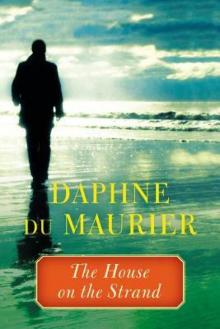 The House on the Strand
The House on the Strand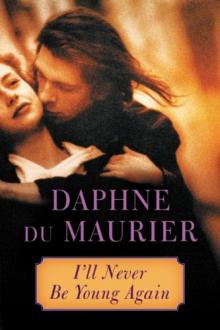 I'll Never Be Young Again
I'll Never Be Young Again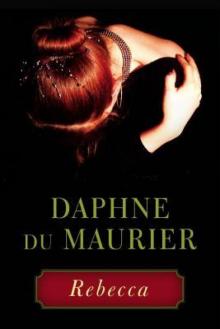 Rebecca
Rebecca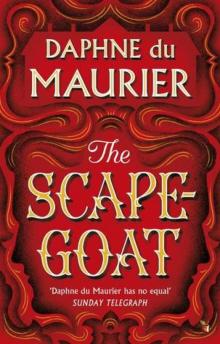 The Scapegoat
The Scapegoat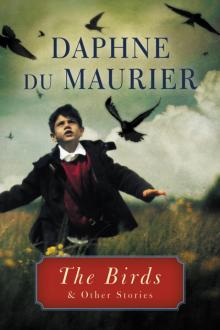 The Birds and Other Stories
The Birds and Other Stories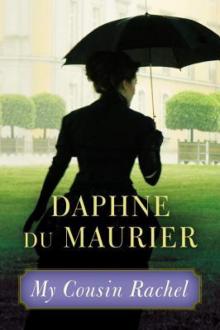 My Cousin Rachel
My Cousin Rachel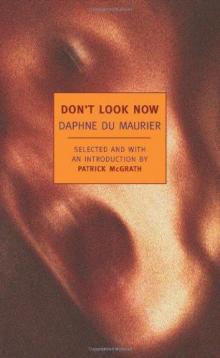 Don't Look Now
Don't Look Now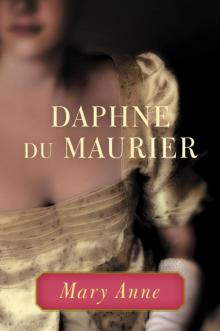 Mary Anne
Mary Anne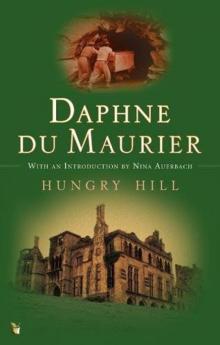 Hungry Hill
Hungry Hill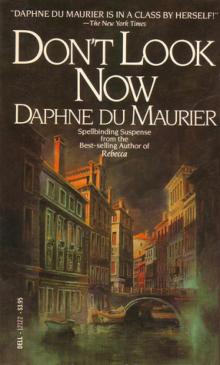 Don't Look Now and Other Stories
Don't Look Now and Other Stories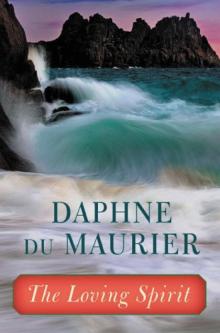 The Loving Spirit
The Loving Spirit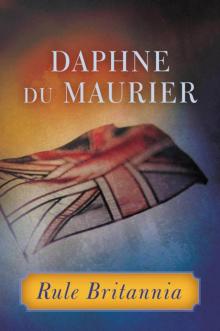 Rule Britannia
Rule Britannia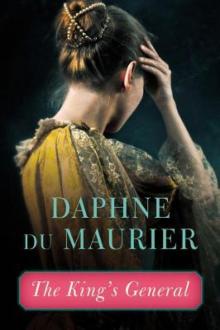 The King's General
The King's General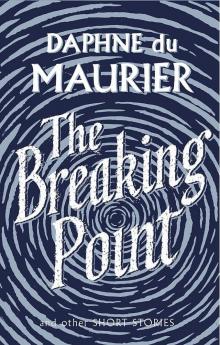 The Breaking Point: Short Stories
The Breaking Point: Short Stories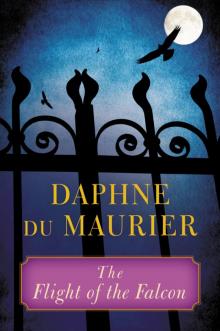 The Flight of the Falcon
The Flight of the Falcon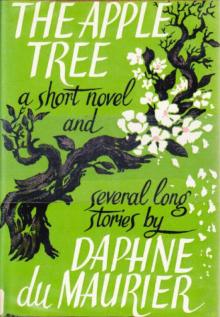 The Apple Tree: a short novel & several long stories
The Apple Tree: a short novel & several long stories The Breaking Point
The Breaking Point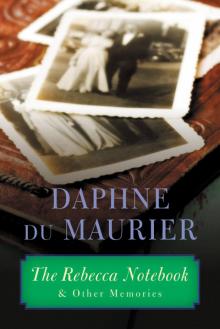 The Rebecca Notebook
The Rebecca Notebook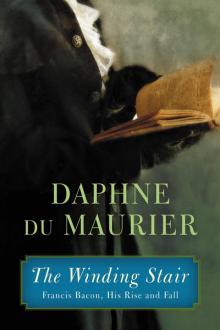 The Winding Stair: Francis Bacon, His Rise and Fall
The Winding Stair: Francis Bacon, His Rise and Fall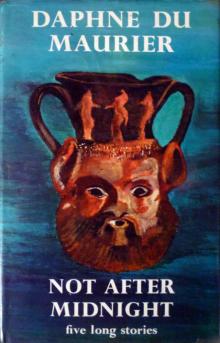 Not After Midnight & Other Stories
Not After Midnight & Other Stories The Doll
The Doll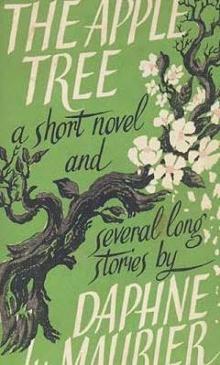 The Apple Tree
The Apple Tree